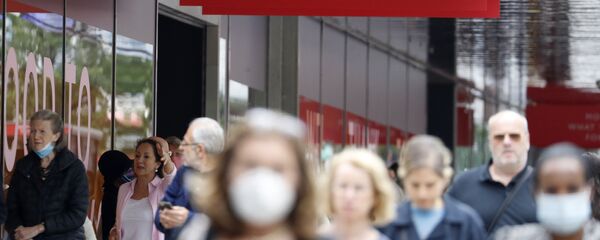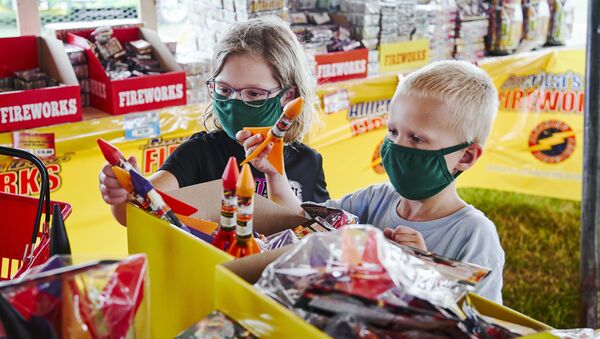Sputnik: How has the pandemic impacted children’s social development?
Laurien Beane: Social development in young children has been impacted by Covid-19 due to the changes in the way that we work and socialise. And so for young children just coming to understand why their routine has been a little bit disrupted, is going to be very helpful. We can look at this through a range of different ways where we support the child to understand. So the first way that we can do it is looking through supporting the child individually with their attachment to the parents and caregivers.
These create extra bonds emotionally and socially to support their social development. Another way that we can look at supporting children through their social development is within the child and family, which we call family systems theory. So this goes beyond just the relationship between parents and caregivers, and moves into the importance of social development to children within the whole family.

Thus, there's lots of research to show that socialising with peers of the same age can also benefit them in environments. And currently, depending on the situation with the lockdown that you might be in, this might just be going out for a walk on the streets, and coincidentally seeing other people in the neighbourhood, young children of their own age or slightly older. So having those opportunities for learning and social contact is very beneficial to children.
Sputnik: How have the extra pressures of the pandemic impacted family life?
Laurien Beane: Yes, we do know there are some added stresses with financial pressures with children. And that is one of the risk factors for social competence development in their learning to relate and get along with others is socio economic hardship. And along with that, it could be other risk factors like family conflict, anxiety, illness or trauma. And we know some children are experiencing stressful events like grief and loss within the family.
One way that we like to look at these risk factors is also to consider what protective factors we may have to be able to assist children to continue on their development for social development. One way we do that is think about providing them with extra support, and for helping them to learn to regulate their emotions during these times. So just talking through what the situations might be happening within the family home, or with carers, and fostering warm relationships with the children. And this helps to promote resilience.
Sputnik: How can we support children during this time?
Laurien Beane: A good way to help children to learn to regulate their emotions is to rediscover relationships that they already have with educators with their friends with carers. And also to talk positively with your child about the people they're going to see. So teachers and friends encourage them to ask questions and to be there in the moment with them replying and responding to the questions about anything that they may be experiencing on media and to monitor the amount of media they're exposed to and communicate those messages.
But if you're really worried about the way that lockdown has affected your child, you should speak to your child's educator or the director in your centre or your GP about connecting with services that are designed to support you and your child because there are a range of services available, including government agencies that can help put you in contact with the right people.


